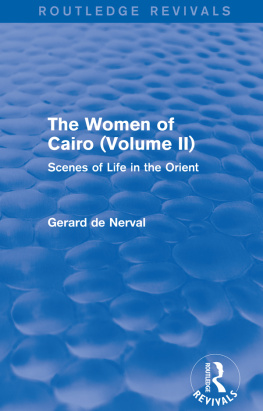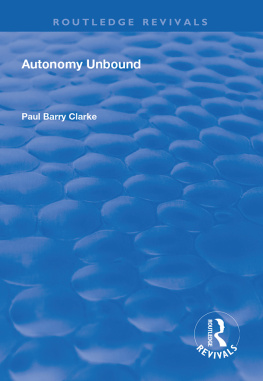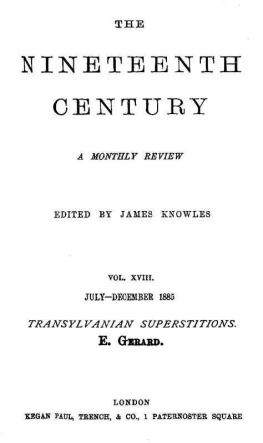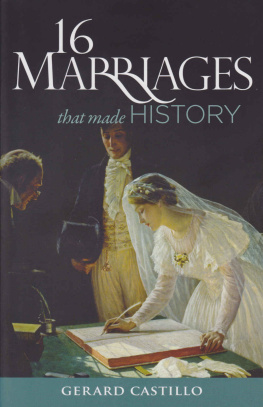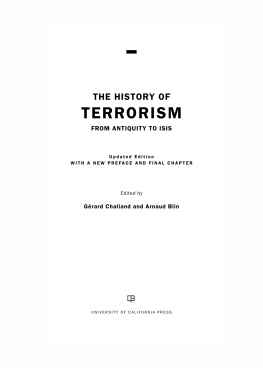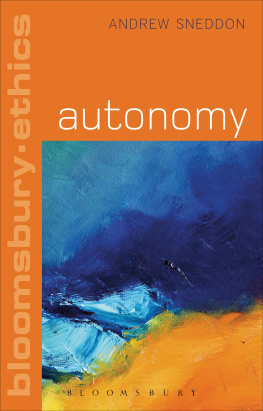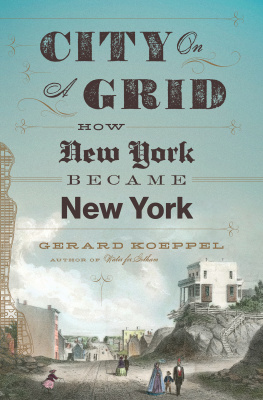Gerard Rosich - The Contested History of Autonomy
Here you can read online Gerard Rosich - The Contested History of Autonomy full text of the book (entire story) in english for free. Download pdf and epub, get meaning, cover and reviews about this ebook. publisher: Bloomsbury UK, genre: Religion. Description of the work, (preface) as well as reviews are available. Best literature library LitArk.com created for fans of good reading and offers a wide selection of genres:
Romance novel
Science fiction
Adventure
Detective
Science
History
Home and family
Prose
Art
Politics
Computer
Non-fiction
Religion
Business
Children
Humor
Choose a favorite category and find really read worthwhile books. Enjoy immersion in the world of imagination, feel the emotions of the characters or learn something new for yourself, make an fascinating discovery.

- Book:The Contested History of Autonomy
- Author:
- Publisher:Bloomsbury UK
- Genre:
- Rating:3 / 5
- Favourites:Add to favourites
- Your mark:
- 60
- 1
- 2
- 3
- 4
- 5
The Contested History of Autonomy: summary, description and annotation
We offer to read an annotation, description, summary or preface (depends on what the author of the book "The Contested History of Autonomy" wrote himself). If you haven't found the necessary information about the book — write in the comments, we will try to find it.
The Contested History of Autonomy — read online for free the complete book (whole text) full work
Below is the text of the book, divided by pages. System saving the place of the last page read, allows you to conveniently read the book "The Contested History of Autonomy" online for free, without having to search again every time where you left off. Put a bookmark, and you can go to the page where you finished reading at any time.
Font size:
Interval:
Bookmark:

The Contested History of Autonomy
Europes Legacy in the Modern World
Series Editors: Martti Koskenniemi and Bo Strth (University of Helsinki, Finland)
The 19th century is often described as Europes century. This series aims to explore the truth of this claim. It views Europe as a global actor and offers insights into its role in ordering the world, creating community and providing welfare in the 19th century and beyond. Volumes in the series investigate tensions between the national and the global, welfare and warfare, property and poverty. They look at how notions like democracy, populism and totalitarianism came to be intertwined and how this legacy persists in the present day world.
The series emphasizes the entanglements between the legal, the political and the economic and employs techniques and methodologies from the history of legal, political and economic thought, the history of events and structural history. The result is a collection of works that shed new light on the role that Europes intellectual history has played in the development of the modern world.
Published:
European Modernity: A Global Approach, Bo Strth and Peter Wagner
Europes Utopias of Peace, Bo Strth
Historical Teleologies in the Modern World, Henning Trper, Dipesh Chakrabarty and Sanjay Subrahmanyam
Political Reform in the Ottoman and Russian Empires, Adrian Brisku
Forthcoming:
Caesarism in the Post-Revolutionary Age: Crisis, Populace and Leadership, Markus J. Prutsch
Social Difference in Nineteenth-Century Spanish America: An Intellectual History, Francisco A. Ortega

BLOOMSBURY ACADEMIC
Bloomsbury Publishing Plc
50 Bedford Square, London, WC1B 3DP, UK
1385 Broadway, New York, NY 10018, USA
BLOOMSBURY, BLOOMSBURY ACADEMIC and the Diana logo are trademarks of Bloomsbury Publishing Plc
First published in Great Britain 2019
Copyright Gerard Rosich, 2019
Gerard Rosich has asserted his right under the Copyright, Designs and Patents Act, 1988, to be identified as Author of this work.
For legal purposes the constitute an extension of this copyright page.
Cover image: Fire, 1566 (oil on wood) by Giuseppe Arcimboldo (152793), commissioned by Maximilian II, Holy Roman Emperor. ( Kunsthistorisches Museum, Vienna, Austria / Bridgeman Images)
All rights reserved. No part of this publication may be reproduced or transmitted in any form or by any means, electronic or mechanical, including photocopying, recording, or any information storage or retrieval system, without prior permission in writing from the publishers.
Bloomsbury Publishing Plc does not have any control over, or responsibility for, any third-party websites referred to or in this book. All internet addresses given in this book were correct at the time of going to press. The author and publisher regret any inconvenience caused if addresses have changed or sites have ceased to exist, but can accept no responsibility for any such changes.
A catalogue record for this book is available from the British Library.
A catalog record for this book is available from the Library of Congress.
ISBN: HB: 978-1-3500-4864-5
ePDF: 978-1-3500-4865-2
eBook: 978-1-3500-4866-9
Series: Europes Legacy in the Modern World
To find out more about our authors and books visit www.bloomsbury.com and sign up for our newsletters.
Contents
I have incurred numerous theoretical debts while writing this book and, in this sense, I expect it is rich in ideas and unveils new questions and approaches. Wherever possible, I have recognized the many debts throughout the book by quoting or referring to the names of these people and their works.
Personally, I should particularly thank Peter Wagner for his support. This book would not have been possible without him, and not only because his approach to the concept of modernity has been key to my inquiry. Taking into account the current workings of academic institutions, it is a miracle that I had the opportunity to work with him. It can only be explained by his generosity and independence.
I would also like to thank Fina Biruls for her substantial reading of the chapters of the book as I was writing them. Her comments and always incisive suggestions have helped to solve impasses or doubts that were emerging. Daniel Gamper, scar Jan, Andreas Kalyvas and Bo Strth also read the entire manuscript and made valuable contributions from their fields of knowledge, most of which have been incorporated into the text. I am deeply grateful to them. I must also thank two anonymous reviewers for comments that helped to improve the manuscript.
This work is part of a larger collective endeavour. Parts of the book were discussed in the seminars of the Trajectories of Modernity (Tramod) research group at the University of Barcelona (http://www.ub.edu/tramod/members/). I thank all its members for their comments and contributions.
This book was originally written in English by a non-native speaker. In this sense, I am particularly grateful to Samuel Sadian, a sociologist colleague of mine in the Tramod research group. He has revised and copy-edited the whole manuscript. Thanks to the fact that he has done much more than was expected of him, I have also been able to benefit from his theoretical help by him pointing out paragraphs of the book that could be improved and arguments that seemed contradictory.
I cannot sufficiently thank the series editors, Bo Strth and Martti Koskenniemi, for their support and guidance throughout the process. Their understanding and encouragement have helped me to face the challenge of writing a book for a global audience.
Special mention must go to . Lorena Fuster Peir. The debt I have incurred with her can hardly be paid back. Numerous thoughts or ideas of this book have emerged from a daily dialogue over the last thirteen years. In particular, without her critical conceptualization of theories of recognition I would have had difficulty perceiving all the perverse dynamics that are generated in the dialectic between domination and emancipation. In addition, her work on the concept of imagination has allowed me to understand that it is the fundamental capacity that human beings possess that guides their actions and thoughts in the world they have themselves created. This has helped me get rid of all theoretical approaches that do not take into account prima facie what human beings do and say. I must also thank her for her comments on what could be improved, was incorrect or obscure.
To all these people, the merit of the work, if any, is due. For any limitations, mistakes and imprecisions it may contain, I am, of course, entirely responsible. Being stubborn and expeditious are suitable behaviours to bring a project to fruition. I hope they have also been so for writing a book.
The research leading to these results has received funding from the European Research Council under the European Unions Seventh Framework Programme (FP7/20072013)/ERC grant agreement n 249438 TRAMOD.
This book will try to challenge two of the most persistent assumptions about the birth of political modernity. First, that notions of autonomy appeared at the end of the eighteenth century during the so-called Age of Revolutions and the Enlightenment; and second, that the breakthrough to modernity in Europe was a consequence of social features unique to the region. Accordingly, so the argument goes, political modernity spread in time and space across the rest of the globe thanks to the normative and functional superiority of its principles. Progress thus meant the increase in intensity and reach of the commitment to autonomy. This is the core argument of modernization theories. Following this narrative, globalization would be the stage in the history of modernity where this commitment is generally shared across the globe.
Font size:
Interval:
Bookmark:
Similar books «The Contested History of Autonomy»
Look at similar books to The Contested History of Autonomy. We have selected literature similar in name and meaning in the hope of providing readers with more options to find new, interesting, not yet read works.
Discussion, reviews of the book The Contested History of Autonomy and just readers' own opinions. Leave your comments, write what you think about the work, its meaning or the main characters. Specify what exactly you liked and what you didn't like, and why you think so.

